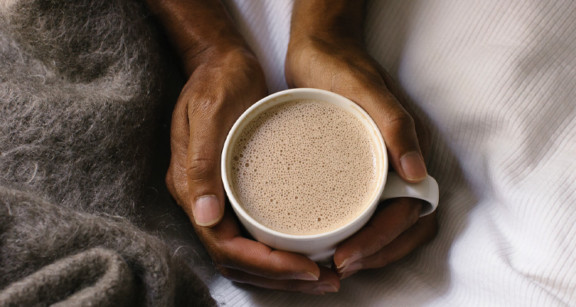Sleep
In a world that never seems to slow down, sleep often takes a back seat to our demanding schedules and endless to-do lists. Yet, it’s during those peaceful hours of slumber that our bodies and minds can undergo remarkable transformations.
Sleep is a biological necessity, much like food and water. It’s not just about closing your eyes and drifting into unconsciousness. It’s a complex process that restores and rejuvenates your physical and mental well-being. But how much sleep do you really need? What are the profound benefits of a good night’s rest? And how can you enhance the quality of your sleep to wake up feeling refreshed and energized?
Explore the incredible advantages of sleep, practical tips to help you sleep better, sleep supplements that work and the delicious recipes to enhance your sleep quality.
Whether you’re a night owl struggling to embrace the tranquility of bedtime or an early riser looking to optimize your sleep routine, read on to discover the profound impact it can have on your life.
How Much Sleep Do I Need?
Sleep is a fundamental physiological process that plays a crucial role in maintaining your physical and mental health.1 However, sleep needs can vary significantly from person to person and throughout different stages of life.
Newborns need an average of 14-17 hours of sleep per day. School-age children and teenagers require 9-12 hours of sleep per night to support growth, development and cognitive functioning. And most adults need 7-9 hours of sleep, although some may function optimally with slightly less or more.2
Sleep needs are highly individual and influenced by genetics, lifestyle, and overall health. Factors such as stress, physical activity, and sleep quality can also affect individual sleep needs. Plus, as you get older, your sleep needs to change.
Need an incentive to get more sleep? Explore some of the remarkable benefits of getting more shut eye.
Benefits of Sleep
There are so many ways that sleep positively affects your body and mind.
Cognitive Function Support
Sleep can play a crucial role in supporting cognitive processes such as memory consolidation, problem-solving and creativity.3 It helps you think more clearly and make better decisions.
Better Moods
A good night's sleep may have a significant impact on your emotional state. It can reduce feelings of irritability, anxiety, and stress, promoting a more positive and balanced mood.4
The Science-Backed Benefits of Sleep
Learn more about the science-backed benefits of sleep and how a good night’s rest can make all the difference.
Exercise Recovery
A recent study found that sleep is the most important factor in exercise recovery.7 Although athletes tend to prioritize exercise and training, quality sleep should also be part of elite athletes’ routines. By addressing sleep deficiencies, athletes can potentially improve their performance.
Skin Appearance
You’ve probably heard of “beauty sleep,” and now there’s scientific evidence that backs up the claim. A study of 32 Korean women in their 40s explored the effects of sleep deprivation on skin elasticity, texture, wrinkles, and hydration, amongst other factors.8 Researchers found that with sleep restrictions, skin hydration and elasticity gradually decreased. Sleeping more may improve your skin’s appearance.
Pain Support
Sleep also has the potential to decrease chronic pain, according to a recent scientific paper exploring various studies.9 Pain and sleep are closely related since pain can cause sleep deprivation, leading to more pain. Indeed, taking melatonin supplements to improve sleep reduced subjective pain in patients.
Sleep touches every facet of your life, from cognitive abilities to your emotional resilience, and from physical health to longevity. It is not merely a luxury, but a fundamental necessity for your overall well-being.
The Bulletproof Approach to Sleep
Having an effective workout routine and a healthy diet is not enough to be your best self. If you’re suffering from sleep deprivation, your body won’t function optimally. Diet, exercise, and sleep are all foundational pillars of health that work together. That’s why it’s so important to make sure you’re getting enough quality sleep every single night.
How to Sleep Better
There are many things you can do to sleep better. Try a few of the tips below and take note of the quality of your rest.
Sleep Space
Create a comfortable and clutter-free sleep environment by investing in a supportive mattress and pillows, as well as light-blocking curtains.
Sleep Routine
Maintain a consistent sleep schedule by going to bed and waking up at the same time every day, even on weekends.
Temperature
Keep your bedroom temperature slightly cool, typically between 60-67°F (15-20°C), as cooler temperatures are often more conducive to sleep.10
Noise
Minimize disruptive noises by using earplugs or a white noise machine to mask background noises.
Limiting Blue Light
Reduce exposure to blue light from screens (phones, tablets, computers, TVs) at least one hour before bedtime.
Caffeine Timing
Avoid consuming caffeine in the afternoon or evening. Go for herbal teas or decaffeinated drinks in the evening to relax before bed.
Mindfulness
Practice meditation for sleep, such as deep breathing or progressive muscle relaxation, to calm your mind and reduce pre-sleep anxiety.
Stress Management
Consider incorporating stress-reduction practices, such as yoga or tai chi, into your daily routine to improve sleep quality.
Besides trying these techniques, you can also experiment with sleep supplements to support a calming bedtime routine.
Our Supplement Testing Standards
At Bulletproof, we know how important sleep is to your overall health. That’s why we offer a variety of solutions that suit your lifestyle, from melatonin sleep gummies to sleep-inducing protein powder. You can rest easy knowing that we hold ourselves to the highest standards when it comes to the efficacy, quality, and safety of our products.
We take pride in carefully choosing ingredients and dosages based on the latest research published in peer-reviewed scientific journals. And we conduct extensive testing for product effectiveness by partnering with independent third-party laboratories. These evaluations guarantee that our products meet the necessary levels of potency to be effective.
Our supplements undergo a thorough quality testing process that includes four stages. First, we test for ingredients to make sure the right quantity is included, and not diluted. Then, we test for purity to guarantee the absence of harmful contaminants. Following that, we conduct strength testing to verify that the product contains the amount of active ingredients as stated on the label. And finally, the supplements undergo composition testing to ensure strict adherence to label specifications. These meticulous testing protocols are in place to certify the safety, effectiveness and accurate labeling of our supplements.
Sleep Supplements
Some of our favorite sleep-supporting products include:
Sleep Mode
This natural, non-addictive remedy is formulated with scientifically supported components to promote restful sleep. Featuring L-ornithine and melatonin sourced from plants. L-Ornithine is a non-essential amino acid that may help reduce exercise-induced fatigue.11 Sleep Mode combines it with sleep-enhancing hormone, melatonin,12 to alleviate stress, help you fall asleep and help you wake up feeling revitalized.
Sleep Gummies
Incorporate these sugar-free sleep gummies into your nightly ritual for undisturbed rest. Our melatonin gummies are enriched with L-theanine and gamma-aminobutyric acid (GABA). L-Theanine is an amino acid found in green tea leaves known for its relaxation-promoting effects without causing drowsiness.13 GABA may help improve sleep by inhibiting excessive brain activity, making it easier to fall asleep and stay asleep.14 This powerful combo can enhance relaxation and elevate the quality of your sleep
Besides trying sleep supplements, you may also want to explore recipes that promote better sleep.
Recipes for Sleep Enhancement
Cook your way to a more restful sleep with our top picks of relaxing recipes.
Learn More About Sleep
Sleep Articles
Why Is Sleep Important? Benefits Of Getting Enough Rest
Could Your Sleep Chronotype Be the Key to Productivity Even if You’re Not a Morning Person?
The Best Sleep Supplements and Practices for Quality Rest
Sleep Hacking: Reboot Your Sleep & Fall Asleep Fast
FAQs
Melatonin is generally considered non-addictive15. It’s a hormone naturally produced by the pineal gland in your brain, and it plays a crucial role in regulating your sleep-wake cycle. When used as a supplement to help with sleep, melatonin is typically considered safe and non-habit-forming.
Sleeping in on weekends to make up for lost sleep during the week, often referred to as “social jet lag” or “sleep compensation,” is a common practice for many people. While occasional sleep-ins can help alleviate some of the sleep debt incurred during the workweek, it is better to stick to a consistent sleep schedule on weekdays and weekends.
Determining whether you’re getting enough sleep involves assessing both the quantity and quality of your sleep, as well as considering how you feel and function during the day. If you consistently wake up feeling tired or groggy, it may be an indication that you’re suffering from sleep deprivation. If you’re unsure whether you’re getting enough sleep or if you’re experiencing persistent sleep-related issues, consider consulting a healthcare professional or a sleep specialist.
Yes, diet can significantly affect the quality of your sleep. Drinks containing caffeine, alcohol or high amounts of sugar can interfere with your ability to fall asleep and reduce your sleep quality. Eating large, heavy or spicy meals close to bedtime can cause indigestion and discomfort, making it difficult to fall asleep or stay asleep.
There are many strategies you can try to address insomnia, like practicing meditation for sleep, establishing a consistent sleep schedule, trying melatonin supplements and limiting screen time before bed. It’s important to remember that improving sleep often requires patience and consistency. Keep a sleep diary to track your progress and identify patterns. If you continue to experience insomnia despite your efforts, seek professional guidance from a healthcare provider or a sleep specialist to address any underlying issues and develop a tailored treatment plan.





